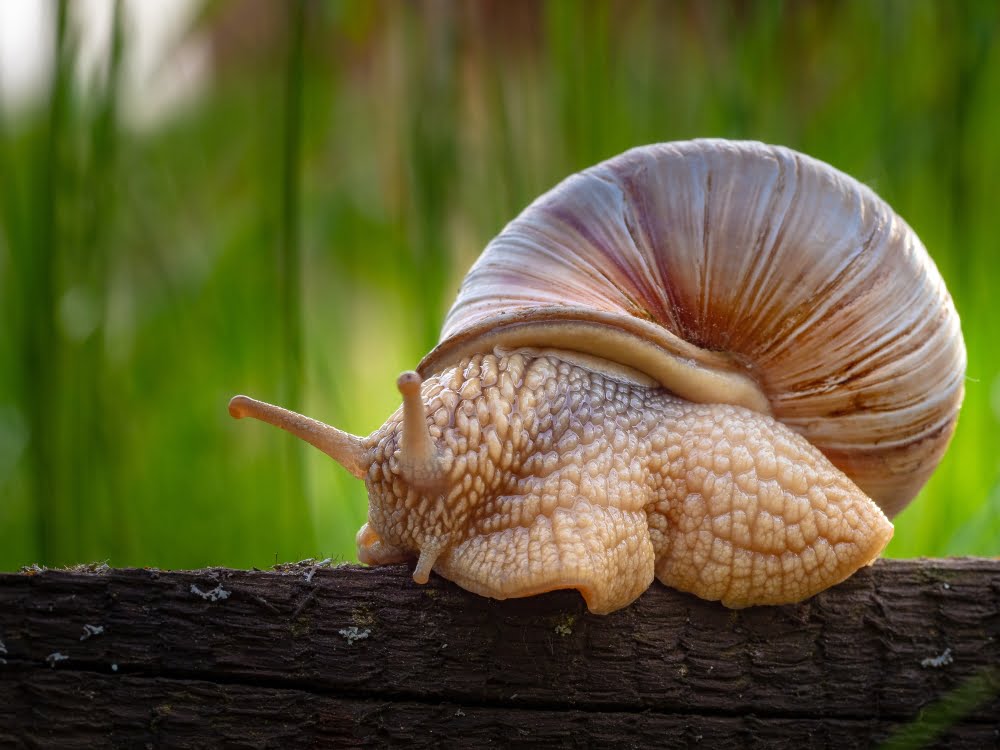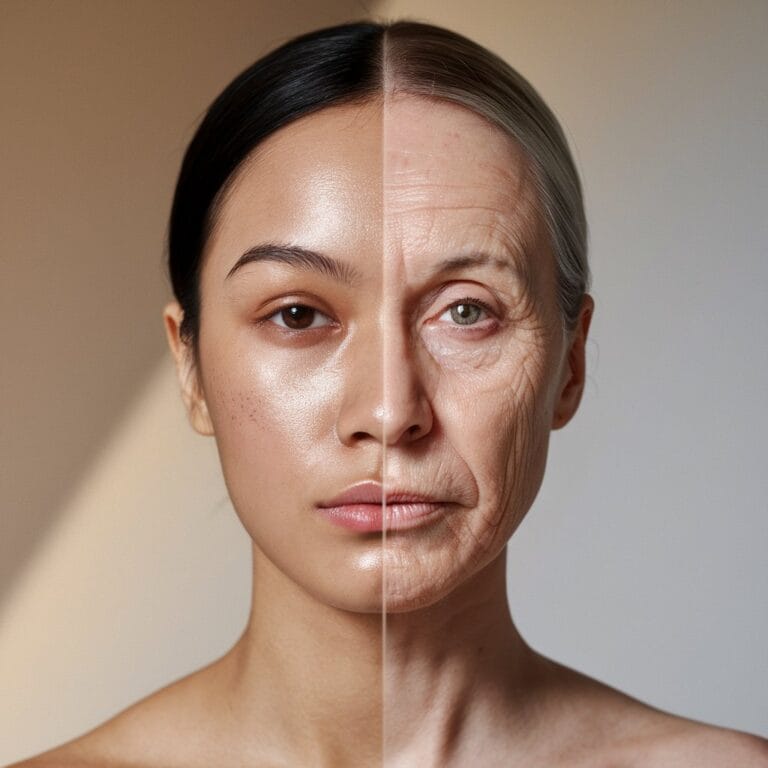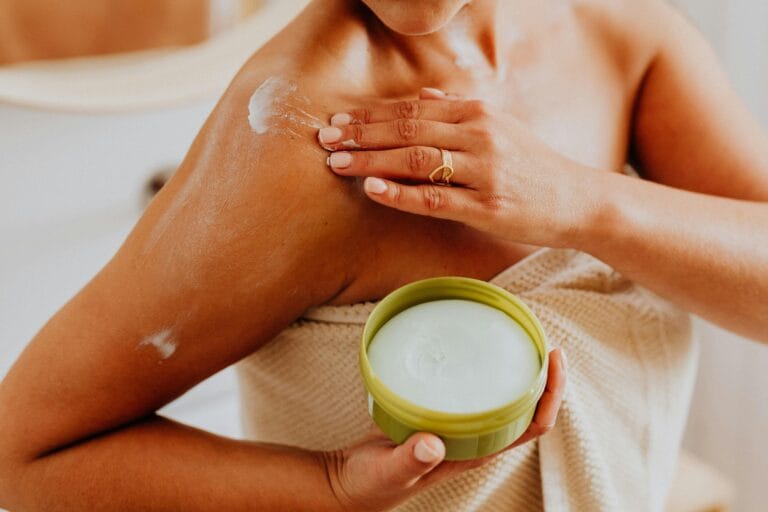FREE SHIPPING OVER $50
Snail Mucin: How Snail Slime is Revolutionizing Skincare
In the ever-evolving realm of skincare, new and innovative ingredients are constantly emerging, each promising unique benefits for our skin. One such ingredient that has taken the beauty world by storm is snail mucin or snail slime. Yes, you read that right – snail mucin, the slimy secretion produced by snails, has become a star player in the skincare game.
While it might sound unusual, snail mucin has garnered attention for its remarkable properties that contribute to healthier, smoother, and more youthful-looking skin. In this article, we’ll delve deep into the world of snail mucin and explore how it’s revolutionizing skincare routines around the globe.
What is Snail Mucin?

Snail mucin, often referred to as snail slime, is a remarkable substance that has captured the attention of the skincare world. Derived from the mucus secreted by snails, it might sound unconventional, but its benefits for the skin are anything but ordinary. This natural wonder is rich in a potent blend of ingredients that work synergistically to promote healthier, more radiant skin.
Composition: The Magic Within Snail Mucin
Snail mucin contains a mix of glycoproteins, glycolic acid, hyaluronic acid, antioxidants, and peptides. These elements play a vital role in enhancing the skin’s vitality and addressing various concerns. This unique composition contributes to its hydrating, soothing, and anti-aging properties, making it a sought-after ingredient in skincare routines.
While snail mucin is well-tolerated by many, it’s essential to perform a patch test before incorporating it into your skincare routine, especially if you have a history of allergies. Although rare, some individuals may experience sensitivity or an allergic reaction. Always prioritize your skin’s health and consult a dermatologist if you have any concerns.
Incorporating snail mucin into your skincare regimen, whether through standalone products or formulas containing snail mucin and aloe vera, can be a game-changer. Its ability to address various skin issues while providing nourishment and hydration showcases its multifaceted potential in achieving healthy, glowing skin.
Why Snail Mucin is Good for the Skin

The versatility of snail slime makes it suitable for a wide range of skin types and concerns. With its natural origins and a host of exceptional qualities, it emerges as a coveted ingredient for achieving radiant, healthy skin.
- Nourishment and Deep Hydration: Snail mucin is abundant in glycoproteins, hyaluronic acid, and glycolic acid, this dynamic trio collaborates to infuse the skin with moisture and essential nutrients. By enhancing the skin’s ability to retain hydration, snail mucin helps maintain a supple, dewy complexion, which is often the cornerstone of a youthful and vibrant appearance.
- Promoting Skin Repair and Renewal: Snail slime contains allantoin and a range of growth factors. These aid in skin repair and regeneration, reducing the appearance of scars and blemishes. As your skin’s natural rejuvenation processes are amplified, you’ll witness the gradual fading of imperfections, unveiling a canvas that radiates newfound luminosity.
- Collagen Boosting and Youthful Vitality: One of snail mucin’s most remarkable feats lies in its ability to stimulate collagen and elastin production. These help thwart the signs of aging, such as fine lines and sagging skin. By fortifying the skin’s underlying structure, snail mucin plays an active role in preserving your skin’s elasticity, firmness, and overall vitality.
- Shielding Against Environmental Stress: Beyond its rejuvenating prowess, snail slime forms a protective barrier against external aggressors that can undermine your skin’s health. Whether it’s pollution, UV rays, or daily wear and tear, snail mucin contributes to shielding your complexion, ensuring that your skin retains its resilience and radiance.
- Reduces Acne: Additionally, it’s gentle exfoliating and antibacterial action, courtesy of glycolic acid, can aid in reducing the appearance of acne scars and hyperpigmentation. Its anti-inflammatory and soothing qualities make it a potential ally for those with sensitive or irritated skin. This qualities have made the use of snail mucin for acne very common.
From its humble origins to its multifaceted benefits, snail slime embodies a holistic approach to skincare that celebrates the innate power of nature.
Snail Mucin for Sunburn
If you’ve ever suffered from sunburn, you know how painful and uncomfortable it can be. You might have tried various remedies, such as aloe vera, yogurt, or ice, to soothe your skin and speed up the healing process. But did you know that there’s another natural ingredient that can help you with sunburn? It’s snail mucin!
But how does snail mucin work for sunburn? Here are some of the benefits of using snail mucin sunburn products:
- Snail mucin has anti-inflammatory properties that can reduce the redness, swelling, and pain caused by sunburn.
- It also has moisturizing properties that can prevent the skin from drying out and peeling after sunburn.
- Snail mucin has wound-healing properties that can stimulate the skin’s regeneration and repair the damage caused by sunburn.
- Snail mucin has antibacterial properties that can prevent infection and irritation from sunburn.
So, is snail mucin good for sunburn? The answer is yes! Snail mucin can be a great addition to your sunburn care routine, as it can soothe, hydrate, heal, and protect your skin. It’s also good for treating acne, wrinkles, scars, or pigmentation. You can find snail mucin in various forms, such as creams, gels, masks, or serums, and apply it directly to the affected area.
Snail Mucin Allergy: Uncommon, but Worth Noting
In the realm of skincare, snail mucin stands as a revered ingredient, but like any skincare component, it’s essential to address potential sensitivities, no matter how rare they may be. While snail mucin allergy is uncommon, it’s a consideration that underscores the importance of understanding your skin’s unique response.
Unraveling Allergic Reactions: Immune Response and Identifying Symptoms
Allergies to snail slime are caused by an immune reaction to the proteins in the slime. These proteins can trigger symptoms like itching, redness, swelling, and hives. However, it’s important to emphasize that such reactions are remarkably uncommon. Snail mucin allergy remains a rare occurrence, and many skincare enthusiasts continue to enjoy its remarkable benefits without any adverse effects.
Navigating Sensitivities: Signs and Precautions
Should you ever suspect an allergy to snail mucin, a few common signs may manifest, including the symptoms mentioned earlier. Although instances of snail mucin allergy are infrequent, it’s wise to conduct a patch test before introducing it into your skincare routine. Apply a small amount to a discreet area, such as your forearm, and observe your skin’s reaction over 24 hours. This precautionary step ensures that your skin can enjoy the multitude of benefits that snail mucin offers without any unwanted surprises.
Celebrating Diversity in Skincare: An Informed Journey
As you embark on your skincare journey, it’s heartening to recognize that the possibility of snail mucin allergy is remarkably uncommon. By prioritizing knowledge and understanding, you’re embracing a holistic approach to your skincare routine—one that celebrates diversity and respects the uniqueness of every individual’s skin.
Remember, it’s advised to conduct a patch test before introducing any new substance to your skincare routine.
FAQs
No, snail mucin is non-comedogenic and is unlikely to clog pores when used as directed.
Snail mucin hydrates, nourishes, repairs, and rejuvenates the skin, promoting a smoother and more youthful complexion.
Yes, snail mucin offers a range of benefits for the skin, including hydration, repair, and anti-aging effects.
Most snail mucin used in skincare products is collected from snails without causing harm, making it a relatively cruelty-free option.
Avoid combining snail mucin with highly acidic products like vitamin C serums to prevent potential irritation.
Yes, snail mucin is generally considered non-comedogenic. This means it is unlikely to clog pores or contribute to the formation of acne.
Yes! Snail mucin can be a great addition to your sunburn care routine, as it can soothe, hydrate, heal, and protect your skin.
Before you leave
In the ever-evolving realm of beauty, snail mucin has emerged as a shining star among natural and effective skincare ingredients. Its rightful place in the spotlight is a testament to the transformative power of nature in enhancing our skincare routines. But the wonders don’t stop here. As we delve deeper into the world of weird yet potent substances, a surprising candidate emerges – synthetic clothing dye. Yes, you read that right. Methylene blue, with its hailed anti-aging, disease-prevention, and therapeutic properties, is making waves among health enthusiasts and beauty experts alike.
Did this article resonate with you? Don’t miss out on our article on natural remedies for tackling seborrheic dermatitis. Embrace the journey to radiant, healthy skin with our holistic approach to skincare.
If you enjoyed this blog post you can explore more natural supplements to improve your health like:
- Fulvic Acid for anti-aging, boosting your immune system and improving digestion.
- Methylene Blue for anti-aging, disease-prevention, and therapeutic properties.
- Bee Pollen for immune system support, and potential skin health improvements.
- Alpha-lipoic Acid for neuropathy.







